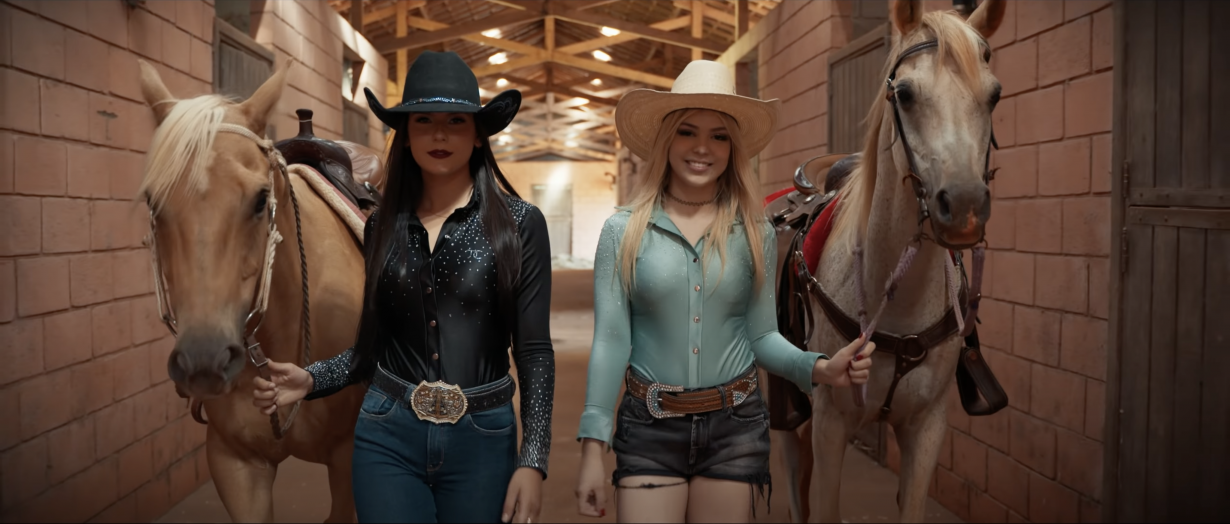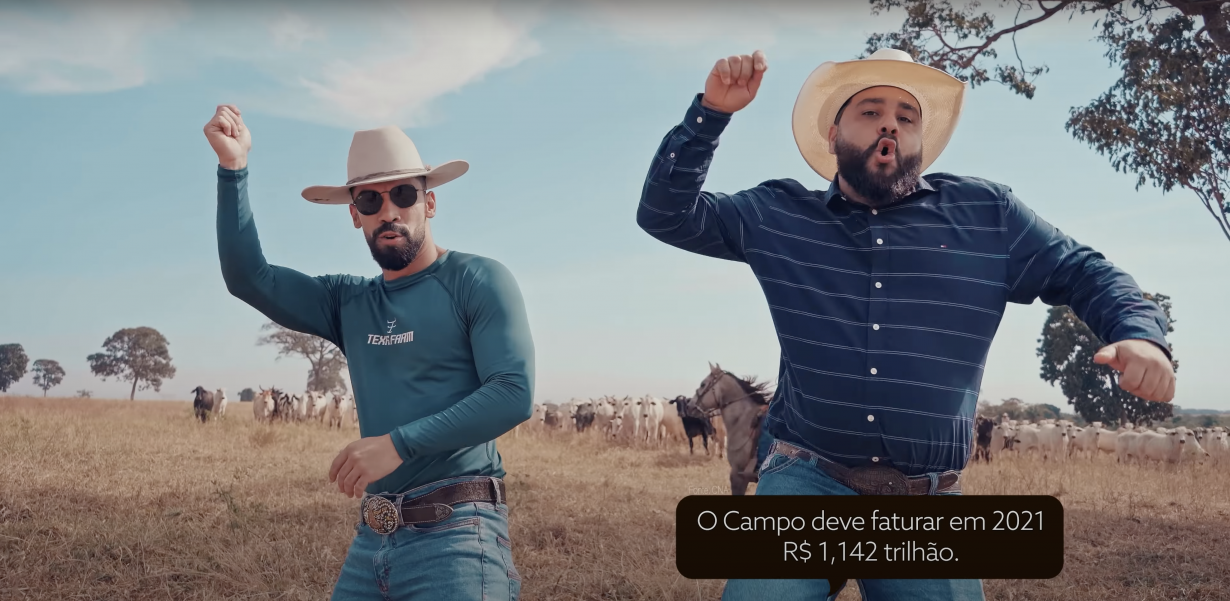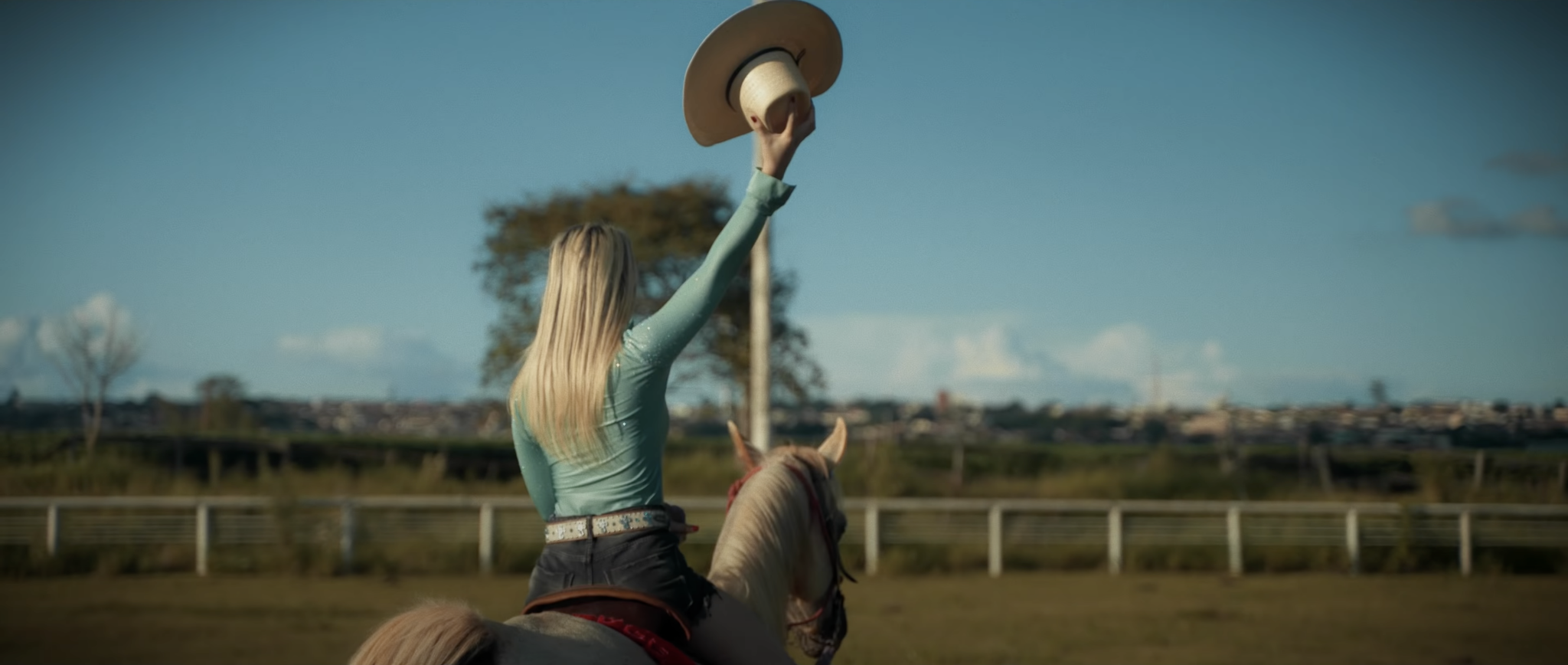In an election year, a genre of music with origins in the organic folk expression of rural Brazil has been co-opted by agribusiness and Bolsonaro
With the 2 October presidential election fast approaching, Brazil is a country of cultural and ideological divides. Former president and leftist figurehead Luiz Inácio Lula da Silva leads the polls and is streets ahead among Catholics, the poor and residents of Brazil’s northeast. Meanwhile, far-right incumbent Jair Bolsonaro enjoys big leads among Evangelicals, the wealthy, and the agricultural centre-west and south. Culturally speaking, these differences can be seen clearly in regional musical preferences. Clubs in the cosmopolitan southeast prefer funk, techno and trap, styles that rarely make it to the rural centre-west where sertanejo country music is king.
This year, however, the broad cultural canyon was briefly bridged with the release of ‘Pipoco’, a genre-bending club hit by Ana Castela, Melody and DJ Chris No Beat. The southeastern crowd were already well aware of Melody – the hypersexualised 15-year-old singer famous for her often-comical falsetto – but the other two arrived as unknown quantities. Sporting western boots, a hefty belt buckle and a stetson, 18-year-old Ana Castela leads the vocals as her Boiadeira (Cowgirl) alterego. Walking pastiche DJ Chris No Beat is on the turntables, complete with floral shirt, cowboy hat and tinted aviators.
Though the combination of artists sounds unorthodox, it makes perfect sense when ‘Pipoco’ immediately bursts into its chorus. The track is a frantic patchwork of regionally irreconcilable Brazilian genres – funk melody, piseiro and modão sertanejo – tied together by EDM.

This is ‘agronejo’, an electronic iteration of traditional sertanejo country music that has completely conquered Brazil’s centre-west soy belt and is quickly gaining ground in the rest of the country. ‘Pipoco’ has already racked up over 72 million plays on Spotify and 106 million views on YouTube. Beyond the fusion of genres, however, what stands out the most about agronejo are its overtly pro-agribusiness lyrics.
Take genre pioneers Leo & Raphael, for instance. The music video for their 2021 hit ‘Os Menino da Pecuária’ (The Livestock Boys) displays a series of agribusiness factoids on screen, celebrating sector turnover and record harvests. The lyrics, meanwhile, boast the vast sums of money the pair earn from ranching cattle. At one point the two gesture to their herd and ask, “how many Ferraris do we have in this pasture?”

Wealth plays a big part in the agronejo movement. In the chorus of Leo & Raphael’s ‘Pecuária 2.0’ (2022), the duo drink, party, and “fuck it if the bill is expensive”. In ‘Colonão’ (2021), Adson & Alana unintentionally channel The Wurzels in proclaiming that “chicks don’t want the city boys, because a combine harvester is worth more than a Ferrari”. The same track features a particularly haunting post-chorus wherein the pair chant “hey, hey, hey, spray the poison from the plane”, accompanied by footage of crops being dusted with pesticides.
Agronejo is, at face value, a right-wing expression that serves the interests of the Bolsonaro government. The president has continuously conveyed his desire for Brazil’s land to become a source of unbridled wealth extraction, with calls for mining authorisation on indigenous reserves, the dismantling of environmental oversight, the profligate licensing of pesticides and the denial of new indigenous land demarcations. To justify this perspective of land use, Bolsonaro points to Brazil’s state-of-the-art agribusiness industry, regularly repeating the same statistics Leo & Raphael showcase in ‘Os Menino da Pecuária’.

But it would be incorrect to pigeonhole agronejo as a purely Bolsonarista movement. It is instead the latest offering from a billion-dollar domestic soft-power project funded by the agribusiness industry.
Looking beyond its partisan tone, agronejo is notable for its obvious abundance of investment. Videos for breakout singles are produced with sponsorship from agribusiness firms and farming equipment chains. The genre’s leading stars didn’t work their way to the top, they started there. And this is no new phenomenon: agronejo is the continuation of a long-term marketing endeavour that seeks to glorify Brazilian agribusiness through the cultural mediums of music, television and film.

During Brazil’s 1964-1985 military dictatorship, agribusiness was singled out as the country’s ticket to economic splendour, and an entire industry arose to prop the sector up through mass media. But for agribusiness to flourish, it would require widespread deforestation, expulsion of indigenous communities from their ancestral lands, suffocation of family farmers, and lots of cheap labour. The plan, therefore, was to construct a false image of Brazilian agriculture, hiding negative aspects and portraying an idyllic, meritocratic rural expanse, where everyone is rich, free, white and hot.
Agribusiness lobbies pumped money into telenovelas, films and books, but it was in sertanejo country music that they found their golden goose. From its origins, sertanejo was an organic expression of rural Brazil. The subject matter was often melancholic, with songs about romantic betrayal and the difficulties of life in the field – unpalatable for agribusiness’s new concept of country living. Forlorn solo guitarists were replaced with duos of male heartthrobs in cowboy hats singing poppy, mass-produced songs about sex, partying and wealth. Agribusiness tycoons paid radio stations to make sure this “new sertanejo” got ample airtime – and when that wasn’t enough, they simply bought out the station owners. Pro-agro politicians began using public money to boost artists, booking them for major municipal concerts and government events. By 2021, four of the five most listened Brazilian artists on Spotify were sertanejo stars. Three of the five most popular musical styles in the country were a trio of different sertanejo sub-genres.
Make no mistake: agronejo and its benefactors have a side in Brazil’s upcoming election, but the soft power project will continue irrespective of the outcome. Beyond backing Bolsonaro or opposing Lula, the message remains the same as sung by Leo & Raphael in their 2019 breakout single: “Agro is top, agro is chic, agro is great, agro is us / If you’re a fan of barbecue and sertanejo, get used to us”.
